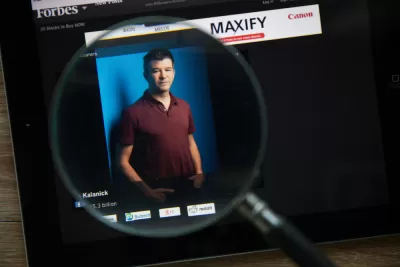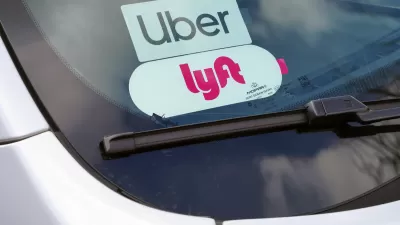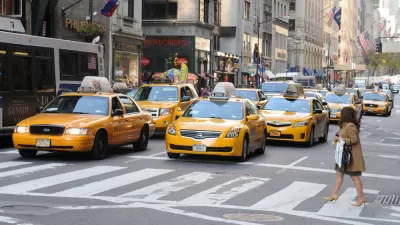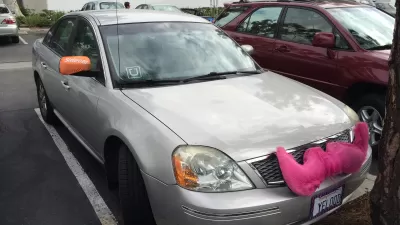A new book traces the path of the influential mobility company from its earliest days and through its many organizational and leadership ups and downs.

Mike Isaac’s new book, Super Pumped: The Battle for Uber, looks at the history of Uber and former CEO Travis Kalanick. In an interview with Andrew Small, Isaac discusses Uber’s start as a transportation company, its impact on cities and planning, and Kalanick’s ultimate fall from the corporate pinnacle.
Small asks Isaac about Uber’s use of Greyball, the program Uber used to avoid authorities in cities where it was not permitted to operate, and how city officials have responded:
A lot of cities have learned a lesson about how much to trust a startup that’s just deciding to barge in. When companies tried to roll out scooters really rapidly in San Francisco, the transportation department immediately slapped them down and threatened to fine companies that pushed through. There are a lot of sore spots from how Uber flooded the zone. City transportation officials don’t want to go through that again. They just got completely railroaded.
Uber’s vision also always went far beyond just disrupting transportation, and transit was in the crosshairs, says Isaac:
Travis wanted to compete for most, if not all, of transportation. I don’t think that he would have been satisfied with saying "We’re just going to get so many people, but then just leave existing ridership on public transportation." I think they wanted to go for it. That’s why they did those carpooling options and shuttles. That’s problematic in and of itself, because it creates a cycle in which [transit] ridership goes down, perhaps funding goes down, and some fundamental public services start to see problems.
Small’s full interview with Isaac goes into a host of other Uber issues, including the toxic corporate culture, its relationship to other companies such as Google and Lyft, and its future as it continues to lose billions of dollars.
FULL STORY: What Uber Did

Alabama: Trump Terminates Settlements for Black Communities Harmed By Raw Sewage
Trump deemed the landmark civil rights agreement “illegal DEI and environmental justice policy.”

Planetizen Federal Action Tracker
A weekly monitor of how Trump’s orders and actions are impacting planners and planning in America.

The 120 Year Old Tiny Home Villages That Sheltered San Francisco’s Earthquake Refugees
More than a century ago, San Francisco mobilized to house thousands of residents displaced by the 1906 earthquake. Could their strategy offer a model for the present?

Ken Jennings Launches Transit Web Series
The Jeopardy champ wants you to ride public transit.

BLM To Rescind Public Lands Rule
The change will downgrade conservation, once again putting federal land at risk for mining and other extractive uses.

Indy Neighborhood Group Builds Temporary Multi-Use Path
Community members, aided in part by funding from the city, repurposed a vehicle lane to create a protected bike and pedestrian path for the summer season.
Urban Design for Planners 1: Software Tools
This six-course series explores essential urban design concepts using open source software and equips planners with the tools they need to participate fully in the urban design process.
Planning for Universal Design
Learn the tools for implementing Universal Design in planning regulations.
Clanton & Associates, Inc.
Jessamine County Fiscal Court
Institute for Housing and Urban Development Studies (IHS)
City of Grandview
Harvard GSD Executive Education
Toledo-Lucas County Plan Commissions
Salt Lake City
NYU Wagner Graduate School of Public Service





























